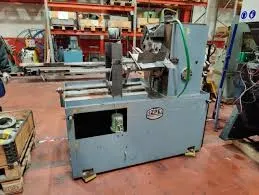
-
 Afrikaans
Afrikaans -
 Albanian
Albanian -
 Amharic
Amharic -
 Arabic
Arabic -
 Armenian
Armenian -
 Azerbaijani
Azerbaijani -
 Basque
Basque -
 Belarusian
Belarusian -
 Bengali
Bengali -
 Bosnian
Bosnian -
 Bulgarian
Bulgarian -
 Catalan
Catalan -
 Cebuano
Cebuano -
 Corsican
Corsican -
 Croatian
Croatian -
 Czech
Czech -
 Danish
Danish -
 Dutch
Dutch -
 English
English -
 Esperanto
Esperanto -
 Estonian
Estonian -
 Finnish
Finnish -
 French
French -
 Frisian
Frisian -
 Galician
Galician -
 Georgian
Georgian -
 German
German -
 Greek
Greek -
 Gujarati
Gujarati -
 Haitian Creole
Haitian Creole -
 hausa
hausa -
 hawaiian
hawaiian -
 Hebrew
Hebrew -
 Hindi
Hindi -
 Miao
Miao -
 Hungarian
Hungarian -
 Icelandic
Icelandic -
 igbo
igbo -
 Indonesian
Indonesian -
 irish
irish -
 Italian
Italian -
 Japanese
Japanese -
 Javanese
Javanese -
 Kannada
Kannada -
 kazakh
kazakh -
 Khmer
Khmer -
 Rwandese
Rwandese -
 Korean
Korean -
 Kurdish
Kurdish -
 Kyrgyz
Kyrgyz -
 Lao
Lao -
 Latin
Latin -
 Latvian
Latvian -
 Lithuanian
Lithuanian -
 Luxembourgish
Luxembourgish -
 Macedonian
Macedonian -
 Malgashi
Malgashi -
 Malay
Malay -
 Malayalam
Malayalam -
 Maltese
Maltese -
 Maori
Maori -
 Marathi
Marathi -
 Mongolian
Mongolian -
 Myanmar
Myanmar -
 Nepali
Nepali -
 Norwegian
Norwegian -
 Norwegian
Norwegian -
 Occitan
Occitan -
 Pashto
Pashto -
 Persian
Persian -
 Polish
Polish -
 Portuguese
Portuguese -
 Punjabi
Punjabi -
 Romanian
Romanian -
 Russian
Russian -
 Samoan
Samoan -
 Scottish Gaelic
Scottish Gaelic -
 Serbian
Serbian -
 Sesotho
Sesotho -
 Shona
Shona -
 Sindhi
Sindhi -
 Sinhala
Sinhala -
 Slovak
Slovak -
 Slovenian
Slovenian -
 Somali
Somali -
 Spanish
Spanish -
 Sundanese
Sundanese -
 Swahili
Swahili -
 Swedish
Swedish -
 Tagalog
Tagalog -
 Tajik
Tajik -
 Tamil
Tamil -
 Tatar
Tatar -
 Telugu
Telugu -
 Thai
Thai -
 Turkish
Turkish -
 Turkmen
Turkmen -
 Ukrainian
Ukrainian -
 Urdu
Urdu -
 Uighur
Uighur -
 Uzbek
Uzbek -
 Vietnamese
Vietnamese -
 Welsh
Welsh -
 Bantu
Bantu -
 Yiddish
Yiddish -
 Yoruba
Yoruba -
 Zulu
Zulu
types of thread rolling manufacturers
Types of Thread Rolling An Overview of Manufacturers and Processes
Thread rolling is a vital manufacturing process used to create various types of threaded fasteners, such as screws, bolts, and nuts. This process is characterized by its ability to produce high-precision and strong threads on metal workpieces without removing material, making it an efficient and cost-effective method compared to traditional cutting techniques. The thread rolling process can be categorized into several types, which are often employed by manufacturers to meet specific industry requirements. Understanding these types helps in selecting the right manufacturing approach based on design needs, material characteristics, and production volume.
1. Flat Die Thread Rolling
Flat die thread rolling is one of the most common methods used in thread rolling. This technique involves the use of two flat dies that press the workpiece, forming the thread by displacement rather than cutting. Flat die thread rolling is particularly efficient for producing large quantities of uniform threads. It is widely used in the automotive, aerospace, and construction industries due to its ability to create strong threads quickly and accurately.
Manufacturers specializing in flat die thread rolling often focus on high-volume production runs where consistency and speed are paramount. The dies are typically made from hard, wear-resistant materials to withstand the forces involved in the process, thereby ensuring durability and precision over thousands of cycles.
2. Piloted or Rotary Thread Rolling
Piloted or rotary thread rolling provides a more flexible approach to thread creation. In this technique, the workpiece is rotated while it is engaged with cylindrical dies that roll along the surface to create threads. This method is ideal for producing non-standard or customized thread profiles, allowing manufacturers to accommodate specific design requirements.
Rotary thread rolling is also advantageous for producing threaded components made from softer metals, as it generates less stress on the material. Manufacturers utilizing rotary thread rolling often emphasize the ability to cater to smaller production runs and unique specifications, making it suitable for niche applications in various industries.
types of thread rolling manufacturers

3. Bolt Thread Rolling
Another specific category is bolt thread rolling, which focuses on producing bolts with uniform and precise thread profiles. This technique often utilizes larger machines capable of handling the heavier workpieces associated with bolt manufacturing. Bolt thread rolling is essential in industries where structural integrity is critical, such as construction and heavy machinery.
Manufacturers engaged in bolt thread rolling are typically equipped with robust machinery and the capability to process various materials, including high-strength alloys. This type of thread rolling not only enhances the bolts' mechanical properties but also improves their surface finish, making them more resistant to wear and corrosion.
4. Multistage Thread Rolling
Multistage thread rolling combines several rolling processes to create complex threaded components. This technique enables manufacturers to produce threads of varying sizes and pitches on the same workpiece. It is particularly useful for applications where multiple thread characteristics are required, such as in certain types of hydraulic fittings and high-performance fasteners.
Manufacturers who employ multistage thread rolling possess advanced machinery that can execute multiple operations in a single pass. This capability significantly reduces production time and minimizes material waste, making multistage rolling an attractive option for businesses focused on efficiency and sustainability.
Conclusion
Thread rolling is a key manufacturing process that offers various methods to suit different applications. From flat die and rotary rolling to bolt and multistage processes, manufacturers can choose the most suitable approach based on their specific needs. Each type of thread rolling comes with its advantages and is aligned with the requirements of different industries. As technology continues to evolve, manufacturers are likely to explore even more innovative and efficient thread rolling solutions, further enhancing the capabilities of this essential process.
